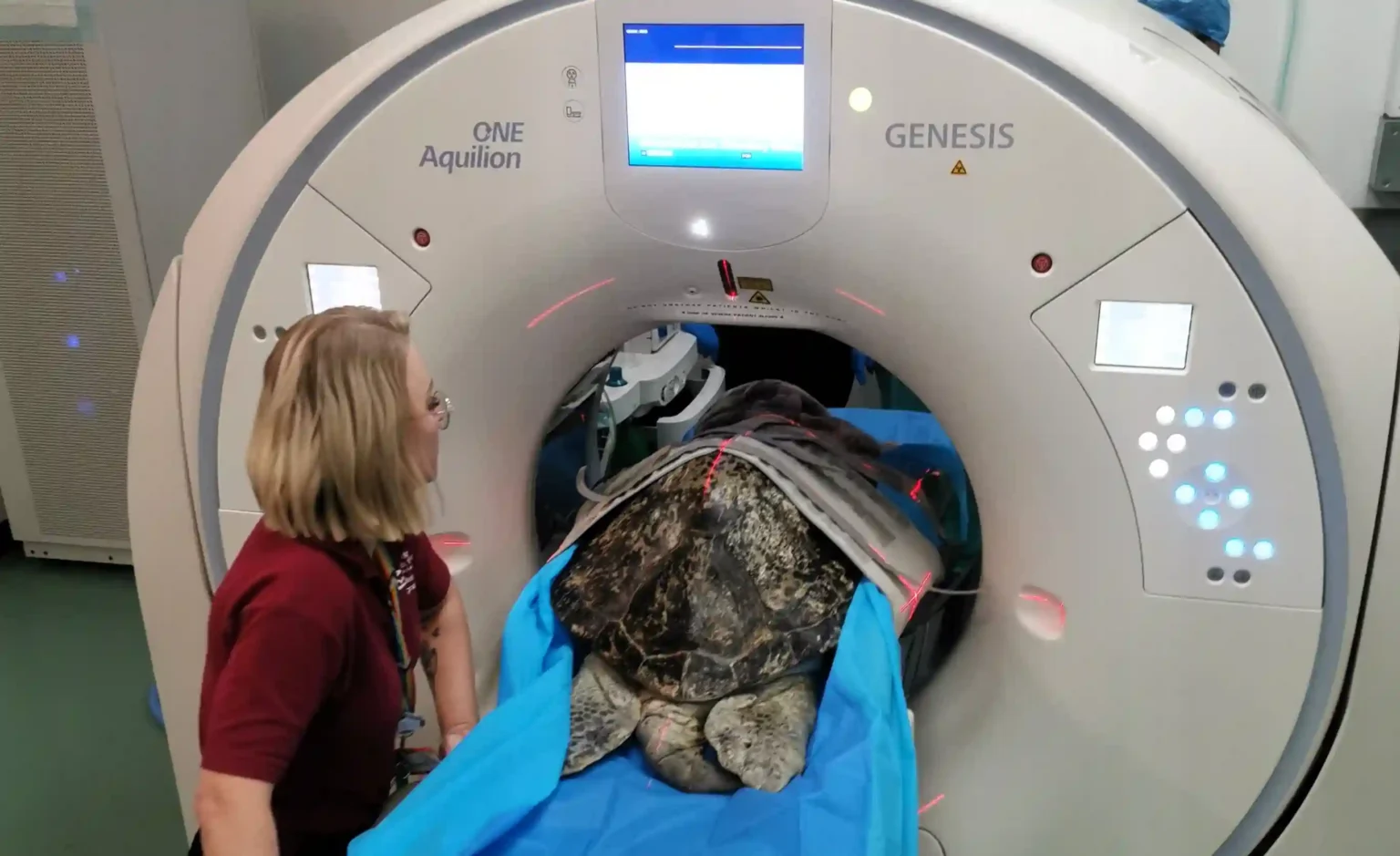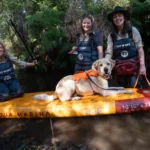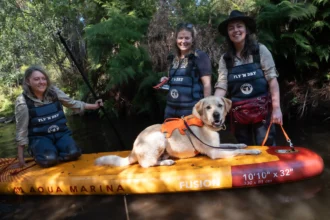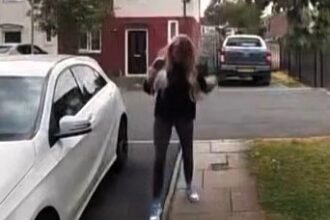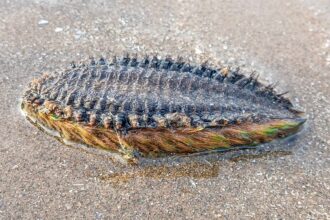Two endangered turtles which struggle to dive after being struck by boats have had a crucial CT scan to check their health.
Sharky and Josie had the procedure to monitor their internals.
A computed tomography scan is a medical imaging technique used to obtain detailed internal images of the body.
READ MORE: Dog gives birth to GREEN puppy – and owner gives her very fitting name
- Advertisement -
The scan provides more detailed information than traditional X-rays and 3D images allow veterinarians to see internal structures and skeletons with precision.
CT scans for turtles detect bone infections, check for ingested foreign objects and monitor for non-viable egg production.
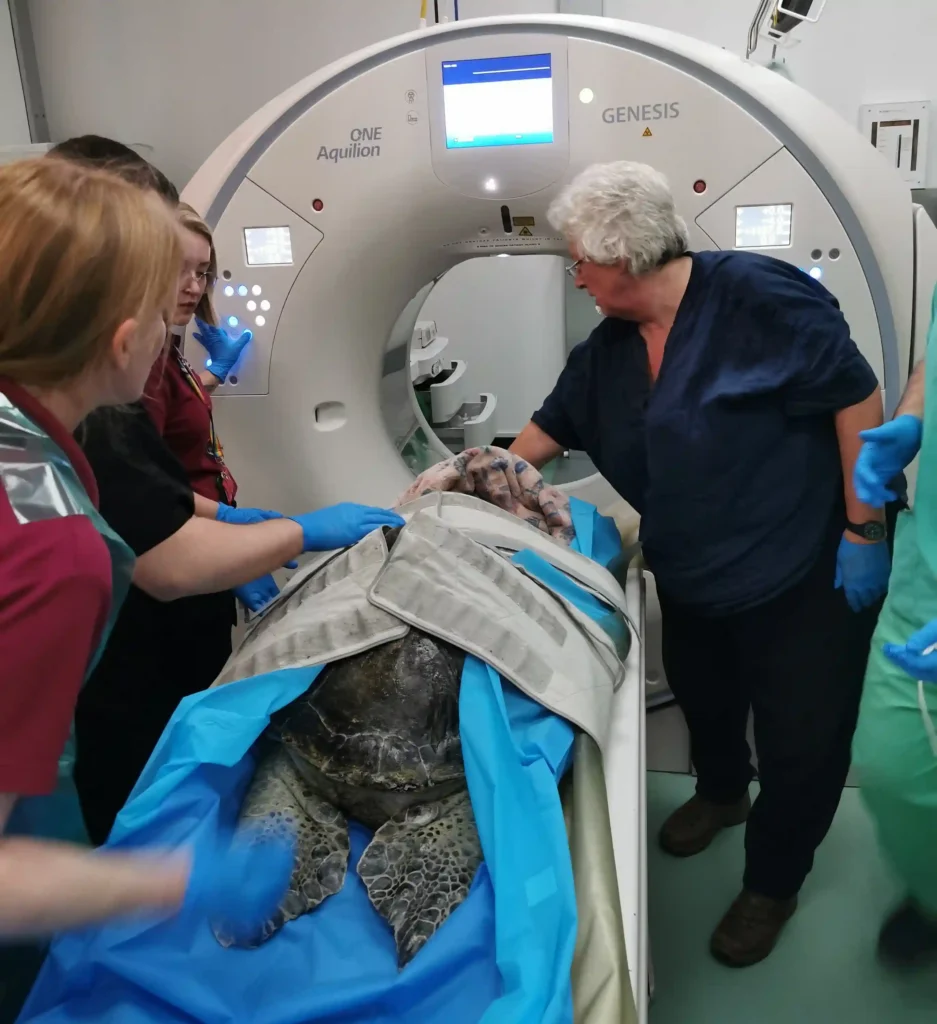
Both turtles were severely injured in boat collisions leading to permanent damage to their shells and internal organs.
Due to these injuries, they were classified as bubble butts – a term used for turtles that have air trapped under their shells – making them too buoyant to dive properly in the wild.
They have lived at Sea Life, Weymouth, Dorset, since 2010 after spending nearly a decade at the Marathon Turtle Hospital in Florida.
- Advertisement -

The scans were done at the Royal Veterinary College, RVC, in London as reported by What’s The Jam.
The journey from Weymouth to the RVC in Camden took almost four hours and covered nearly 140 miles and was planned to minimise stress for the turtles.

A spokesperson for Sea Life, Weymouth, said: “Our turtles are incredibly resilient but it’s our duty to ensure they receive the best possible care.
- Advertisement -
“The CT scan gives us a clear understanding of their internal health.
“Sea Life Weymouth remains committed to the health and well-being of its turtles, providing them with expert veterinary care and a safe environment that mimics their natural habitat as much as possible.
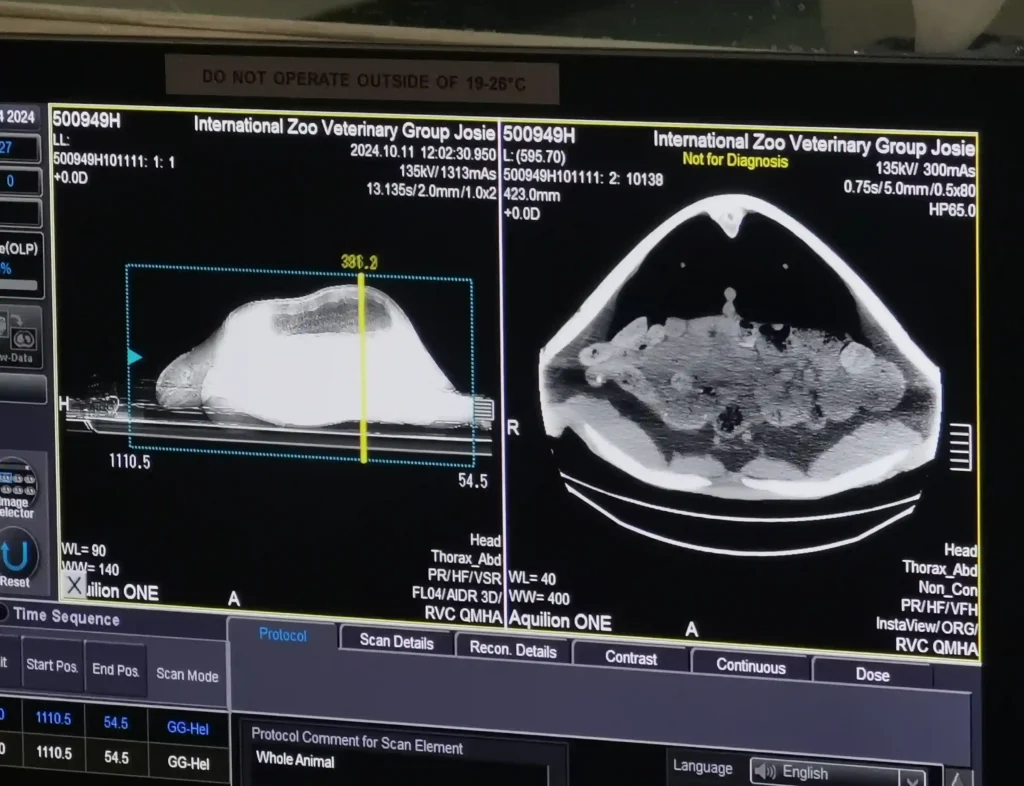
“The centre is proud to offer these incredible animals a second chance at
life after their traumatic injuries.”
The pair are trained to swim into a special stretcher used for weighing and transport and both voluntarily enter the device which lifts them from their tank.
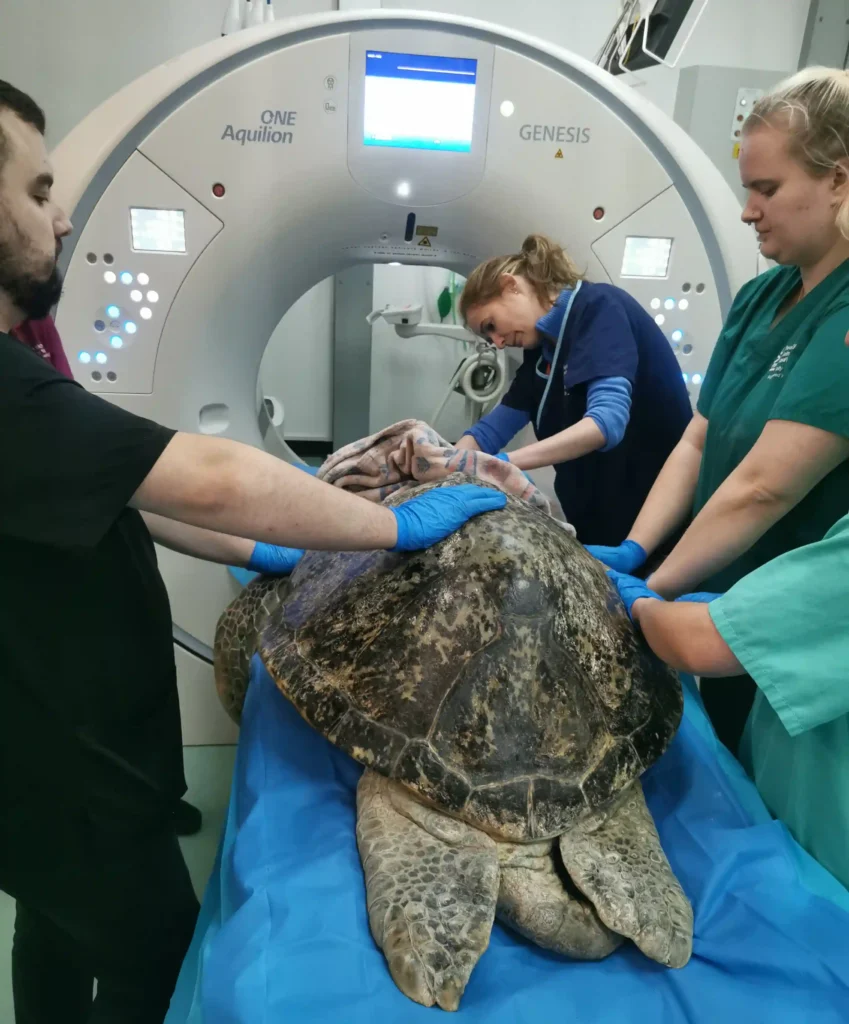
They were then transported in custom-made wooden crates lined with padding and equipped with ventilation to ensure comfort.
Their shells had to be coated with Vaseline to prevent drying during the journey, and a heated van maintained a stable 24°C to accommodate the turtles’ tropical needs.
In London, the turtles were anaesthetized and put through the scan.

After a review of the scans, the turtles were carefully woken up and returned to Weymouth where they resumed their usual routine including feasting on their favourite snack – squid.
Green sea turtles typically live in warm, tropical waters and are known for their calm demeanour.
READ MORE: Heartwarming moment owner reunited with dog after 750 days apart during cancer journey


